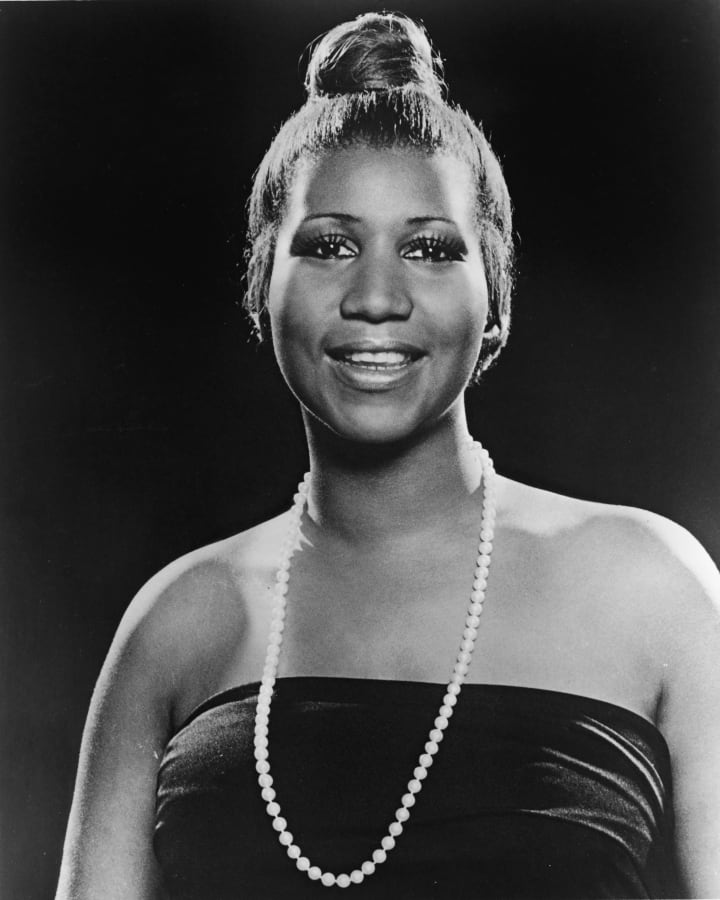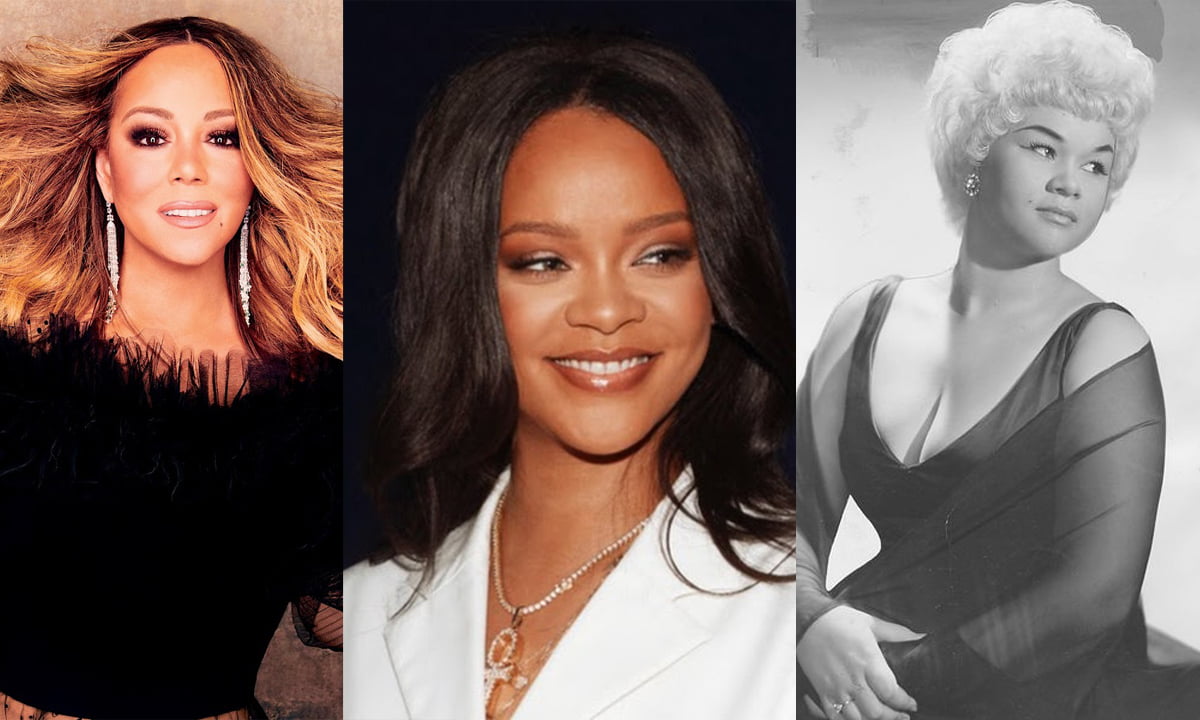When we talk about female black singers of the 70s, we’re diving into a world of pure talent, raw emotion, and groundbreaking music. This era wasn’t just about catchy tunes; it was about creating a legacy that would inspire generations. These women didn’t just sing—they revolutionized the music industry and paved the way for countless others. So, buckle up because we’re about to take a trip down memory lane to discover the incredible artists who shaped the sound of the 70s.
The 70s was a decade of change, and female black singers were at the forefront of that transformation. Their voices weren’t just heard; they were felt. From soulful ballads to funky grooves, these artists brought a depth to their music that resonated with millions around the world. It’s not just about the music—it’s about the stories, the struggles, and the triumphs that came with it.
But why should you care? Because understanding the contributions of these legendary female black singers helps us appreciate the rich tapestry of music we enjoy today. From Aretha Franklin to Diana Ross, each artist brought something unique to the table. And trust me, their stories are as fascinating as their music. So, let’s dive in and uncover the magic of the 70s through the voices that defined it.
Read also:Paul Edmonds Hair Salon The Ultimate Guide To Hair Perfection
Table of Contents
Biography: Who Were These Incredible Women?
Aretha Franklin: The Queen of Soul
Diana Ross: The Supremes to Solo Stardom
Dionne Warwick: The Voice of Love
Lutheran Influences: A Hidden Connection
Read also:Best Black Hair Stylist In Detroit Your Ultimate Guide To Salon Excellence
Impact on Music: How They Changed the Game
Challenges Faced: Breaking Barriers
Modern Influence: Their Legacy Lives On
Statistics: The Numbers Behind Their Success
Conclusion: Celebrating the Icons
Biography: Who Were These Incredible Women?
Before we dive into the music, let’s take a moment to understand the women behind the melodies. Female black singers of the 70s weren’t just artists; they were trailblazers, activists, and icons. Below is a quick glance at some of the most influential names of the era:
Biodata of Female Black Singers of the 70s
| Name | Birth Year | Genre | Notable Achievements |
|---|---|---|---|
| Aretha Franklin | 1942 | Soul, R&B | 18 Grammy Awards, "Respect" became an anthem for civil rights |
| Diana Ross | 1944 | Pop, R&B, Disco | Founding member of The Supremes, one of the best-selling female artists of all time |
| Laura Nyro | 1947 | Soul, Folk | Influenced artists like Barbra Streisand and Three Dog Night |
| Dionne Warwick | 1940 | Pop, R&B | 20 Grammy nominations, hits like "Walk On By" and "That's What Friends Are For" |
These women weren’t just singers—they were pioneers who used their voices to speak truth to power. Let’s explore their stories in more detail.
Aretha Franklin: The Queen of Soul
When it comes to female black singers of the 70s, you can’t skip Aretha Franklin. Known as the "Queen of Soul," her voice was a force of nature. Born in 1942, Aretha started her career in gospel music before transitioning to secular hits. Her song "Respect" became more than just a hit—it became a symbol of empowerment for women and African Americans alike.
Aretha wasn’t just about the music; she was about the message. Her influence extended beyond the charts, touching the civil rights movement and inspiring countless artists. She won 18 Grammy Awards during her lifetime, and her legacy continues to inspire new generations.
Key facts about Aretha:
- Born in Memphis, Tennessee
- Recorded over 112 charted singles on Billboard
- Inducted into the Rock and Roll Hall of Fame in 1987
Diana Ross: The Supremes to Solo Stardom
Diana Ross’s journey from The Supremes to solo superstardom is one of the most iconic in music history. As the lead singer of The Supremes, she helped the group become one of the most successful vocal groups of all time. But it was her solo career that truly cemented her place in the annals of music history.
Diana’s voice had a timeless quality that transcended genres. Whether she was crooning a love ballad or grooving to a disco beat, her performances were nothing short of magical. Hits like "Ain't No Mountain High Enough" and "I'm Coming Out" showcased her versatility as an artist.
Did You Know?
Diana Ross was the first African American woman to be nominated for an Academy Award for Best Actress for her role in "Lady Sings the Blues." Her impact on pop culture is immeasurable, and her influence can still be felt today.
Laura Nyro: The Hidden Gem
If you haven’t heard of Laura Nyro, you’re missing out on one of the most underappreciated talents of the 70s. Born in 1947, Laura was a singer-songwriter whose work influenced some of the biggest names in music. Artists like Barbra Streisand, Three Dog Night, and The 5th Dimension covered her songs, bringing her genius to a wider audience.
Her music was a blend of soul, folk, and pop, with lyrics that were both poetic and deeply personal. Songs like "Stoney End" and "And When I Die" showcased her incredible songwriting ability. Though she never achieved mainstream success, her influence on the music industry is undeniable.
Dionne Warwick: The Voice of Love
Dionne Warwick’s voice is one of the most recognizable in music history. Known for her smooth, soulful delivery, Dionne became a household name in the 70s with hits like "Walk On By" and "Do You Know the Way to San Jose." Her collaboration with Burt Bacharach produced some of the most memorable songs of the era.
What set Dionne apart was her ability to convey emotion through her music. Her songs were often about love, heartbreak, and resilience, resonating with listeners on a deeply personal level. Over the years, she earned 20 Grammy nominations and became one of the most successful female artists of her time.
Lutheran Influences: A Hidden Connection
While not directly related to the music of the 70s, it’s worth noting that many female black singers drew inspiration from gospel and church music. Artists like Aretha Franklin and Mahalia Jackson had deep roots in the church, and their music often reflected those influences.
Gospel music, with its rich harmonies and emotional depth, laid the foundation for many of the sounds we associate with soul and R&B. It’s a connection that’s often overlooked but plays a crucial role in understanding the music of the era.
Impact on Music: How They Changed the Game
The impact of female black singers of the 70s on the music industry cannot be overstated. They broke down barriers, challenged stereotypes, and created a space for themselves in an industry that was often hostile to women of color. Their contributions went beyond music; they became symbols of empowerment and resilience.
Here are just a few ways they changed the game:
- They paved the way for future generations of female artists
- They brought African American culture to the mainstream
- They used their platforms to advocate for social justice
Challenges Faced: Breaking Barriers
Despite their success, female black singers of the 70s faced numerous challenges. Racism, sexism, and industry exploitation were just a few of the obstacles they had to overcome. Many of them used their music as a form of resistance, speaking out against injustice and inequality.
But they didn’t just survive—they thrived. Their perseverance and talent helped them rise above the challenges and create a legacy that continues to inspire today. It’s a testament to their strength and resilience that their music still resonates with audiences worldwide.
Modern Influence: Their Legacy Lives On
The influence of female black singers of the 70s can still be felt in the music of today. Artists like Beyoncé, Alicia Keys, and Adele have cited them as major influences on their work. Their contributions to music, activism, and culture have left an indelible mark on the world.
As we celebrate their legacy, it’s important to remember the impact they had on shaping the music industry. Their stories remind us of the power of art to bring about change and inspire hope.
Statistics: The Numbers Behind Their Success
Let’s take a look at some of the numbers that highlight the success of female black singers of the 70s:
- Aretha Franklin sold over 75 million records worldwide
- Diana Ross has sold over 100 million records as a solo artist
- Dionne Warwick has 20 Grammy nominations and 5 wins
- The Supremes, led by Diana Ross, had 12 number-one hits on the Billboard Hot 100
These numbers speak to the incredible impact these women had on the music industry. Their success wasn’t just about the charts; it was about creating a lasting legacy that continues to inspire new generations.
Conclusion: Celebrating the Icons
Female black singers of the 70s weren’t just musicians—they were icons who shaped the sound of an era. From Aretha Franklin to Diana Ross, each artist brought something unique to the table, creating a rich tapestry of music that continues to inspire today.
As we celebrate their contributions, let’s take a moment to reflect on the challenges they faced and the barriers they broke. Their stories remind us of the power of art to bring about change and inspire hope. So, the next time you hear one of their songs, remember the legacy behind it.
Now, it’s your turn. Share your thoughts in the comments below. Who’s your favorite female black singer of the 70s? And don’t forget to check out our other articles for more music history and inspiration!


